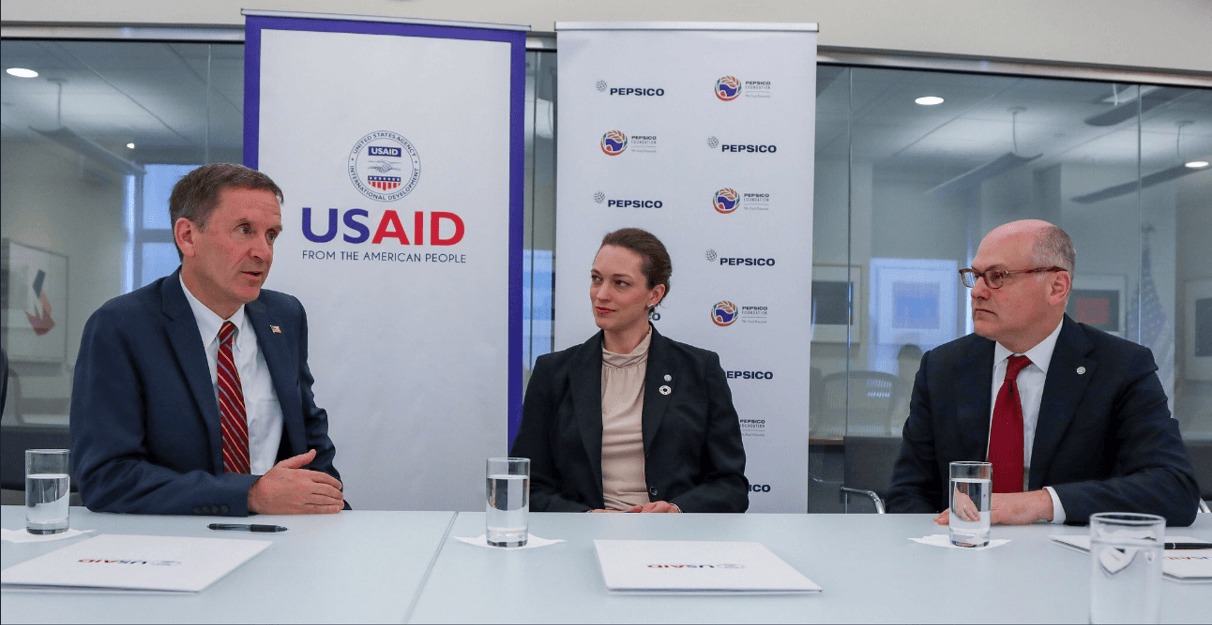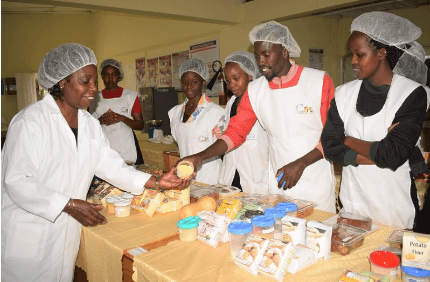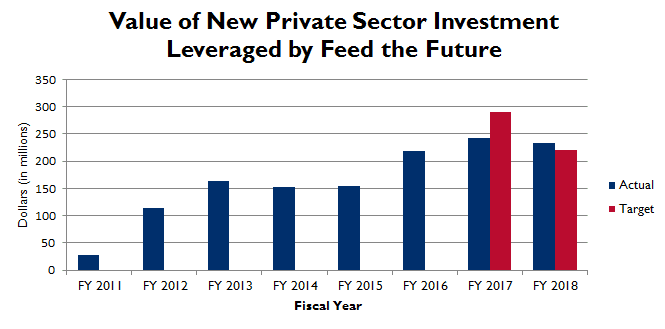The U.S. Agency for International Development (USAID) continues to promote agriculture-led growth through the implementation of the U.S. Government’s Global Food-Security Strategy through the Feed the Future initiative. Feed the Future brings together a host of partners in pursuit of a common goal: To end global hunger, malnutrition, and poverty. These efforts are critical to advancing USAID’s Agency Priority Goals (APGs) on Food Security and Resilience and Effective Partnering and Procurement Reform. APGs are a mechanism for agencies to outline key objectives and measure results against a set of benchmarks and indicators.
Feed the Future exemplifies the agency’s use of partnerships to promote inclusive growth, market-oriented solutions, and cutting-edge science. In June, USAID signed a new Memorandum of Understanding with PepsiCo and the PepsiCo Foundation. Through co-creation and co-investment, this partnership will help underserved communities around the world address food and water challenges sustainably by enhancing agricultural productivity. Two programs are already planned in India and Egypt to empower women and increase transparency and sustainability in agricultural supply chains. By engaging in partnerships such as these, USAID is harnessing the power of the private sector to address the world’s development challenges. In fiscal year (FY) 2018, Feed the Future leveraged nearly $235 million in new private sector investments.
The effort to end global hunger is also driven by Feed the Future’s 24 Innovation Labs and their network of over 50 top U.S. universities, developing the tools and technologies that address food and nutrition challenges at home and abroad. This summer USAID awarded Purdue University $3 million to continue its work as the Feed the Future Innovation Lab for Food Processing and Post-Harvest Handling. Through this work, Purdue will focus on improving the process that brings crops from the farm to the market, and ultimately to consumers, through food processing to increase commercialization and improve nutrition. USAID also awarded Purdue University $10 million to lead Feed the Future’s first-ever Innovation Lab dedicated to food safety. Feed the Future Innovation Labs are critical opportunities for knowledge sharing, which ensures USAID incorporates best practices, evidence, and lessons learned from ongoing programs and other sources into the design and development of new activities. In FY 2019, Feed the Future has held nine formal knowledge sharing events to support USAID’s commitment to evidence-based, data-driven programming.



